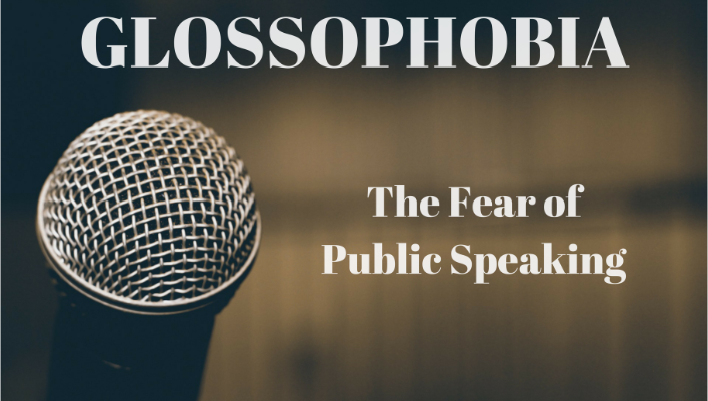Do you know that glossophobia is one of the most common phobias? Glossophobia isn’t a dangerous disease or chronic condition. It’s the medical term for the fear of public speaking. And it affects as many as four out of 10 people.
Glossophobia is a subset of social phobia, or fear of social situations. Most people with glossophobia do not exhibit symptoms of other types of social phobia, such as fear of meeting new people or fear of performing tasks in front of others. In fact, many people with glossophobia are able to dance or sing onstage, provided they do not have to talk. Nonetheless, stage fright is a relatively common experience in those with glossophobia.
Glossophobia can even occur in front of just a few people. In a child, it may present as the child desperately hoping she doesn’t get called on in class to answer a question. It may cause people to avoid situations, including social situations, where they may become the focus of attention. Of course, many people are able to manage and control the fear. If your fear is significant enough to cause problems in work, school or social settings, then it is possible that you suffer from a full-blown phobia.
Some glossophobics have been able to dance, perform in public, or even to speak (such as in a play) or sing if they cannot see the audience, or if they feel that they are presenting a character or stage persona rather than themselves. Being able to blend in a group (as in a choir or band) can also alleviate some anxiety caused by glossophobia.
People who suffer from glossophobia tend to freeze in front of any audience, even a couple of people. They find their mouth dries up, their voice is weak and their body starts shaking. They may even sweat, go red and feel their heart thumping rapidly. If you suffer from glossophobia you shy away from any opportunity to speak in public.

Glossophobia (Public Speaking Fear)
Glossophobia or speech anxiety is the fear of public speaking or of speaking in general. Many people only have this fear, while others may also have social phobia or social anxiety disorder. Stage fright may be a symptom of glossophobia. Many people report stress-induced speech disorders which are only present during public speech.
Glossophobia Definition
It refers to the fear or apprehension of speaking in public or of speaking on a general level. It is also referred to as speech anxiety. The term “Glossophobia” is derived from the Greek word “glossa”, which means tongue and “phobos”, meaning fear or dread. A lot of people are only plagued by this fear, while there are others who also experience other social anxiety disorder or other social phobias.
Glossophobia Facts and Statistics
Fear of public speaking statistics and facts on speech anxiety or so-called glossophobia. Cold sweat on the stage is called by many terms; anxiety, the expression stage fright, the indication of not well feeling, and address phobia or performance anxiety. Some facts are:
- Surveys show that most people would rather die instead of talking in front of a live audience.
- Fear of public speaking has negative effects on careers and influences success in life negatively when you do nothing about it
- Three out of every four individuals suffer from speech anxiety: that’s 75 percent.
- Up to 5 percent of the world population, hundreds of millions aged between 18 and 54, experience this kind of social phobia in any given year.
- Women and men are equally affected. Although there are fear of public speaking statistics that present figures in which more women suffer from speech anxiety related problems.
- More men than women seek treatment to cure fear of public speaking
- Social phobias often start with shyness in childhood or early adolescence, and progresses during adolescence, according to scientific studies of fear of public speaking statistics.
- According to statistics percent of people who suffer from speech anxiety is 74%. For women it is 75% and for men it is 73%.
Glossophobia Tests and Diagnosis
Glossophobia and social phobia come hand in hand as they have same features. According to world health organization glossophobia is diagnosed with following features:
- A marked and persistent fear of being scrutinised by others in one or more social situations. The fear involves acting in a way that will be embarrassing or humiliating (including showing symptoms of anxiety).
- Exposure to the feared situation causes anxiety and may lead to a panic attack
- The fear is recognized to be irrational and excessive
- The fear leads to marked distress during exposure to the social situation, or may lead to avoidance of that situation.
How to overcome Glossophobia?
If you struggle with speaking in social situations or your button-lipped tendencies are making it difficult to get ahead at work, you’re in luck. We’ve assembled a list of tips to help loosen your tongue that are backed by scientific evidence. One can overcome glossophobia by following ways:
- Learn as much as you can about your topic
- Find out who your audience will be
- Prepare a presentation
- Don’t memorize your speech
- Practice
- Anticipate questions your audience may ask
- Dress well, but comfortably
- Stop telling everyone how nervous you are
- Keep a glass of water next to you.
- Find some friendly faces in the audience
- Use visual aids
- Speak slowly
Glossophobia Treatment
Glossophobia can be treated using a combination of psychotherapies and medicines.
- Exposure therapies are seen as most effective treatment method for the fear of public speaking. The therapist guides through regular exposure sessions where the person will need to face public speaking settings.
- Brain chemicals such as Serotonin (a compound present in blood platelets and serum that constricts the blood vessels and acts as a neurotransmitter) help to regulate the mood level of a person. During phobic episodes, the mood level goes down. Anti-anxiety and anti-depressant medicines can help to adjust these types of brain chemicals.
 Health & Care Information
Health & Care Information 

